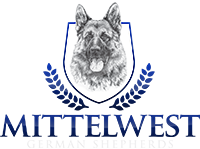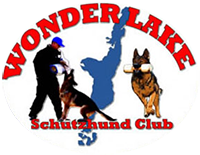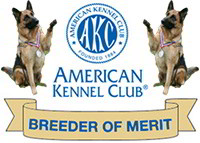Feeding your German Shepherd puppies can feel like a balancing act, but getting it right is key to keeping them strong and full of confidence. Knowing how much to feed your furry friend is important for their overall health. These pups need a balanced diet that fits their age, weight, and activity level to thrive.
Confused about how many pounds of dog food you should buy per month? Keep reading to uncover the essentials about their nutritional needs and what factors can affect how much they eat. This guide will help you nail down the perfect portion sizes to keep your pup healthy and happy at every stage of life.

Crafting A Nutritional Diet For Your German Shepherd Puppies
GSDs need a balanced mix of proteins, fats, carbs, vitamins, and minerals. Puppies are growing fast and need extra protein for that puppy power. Adults benefit from a well-rounded diet to keep their energy levels up. Senior dogs? They thrive on lower-calorie meals packed with nutrients to support those aging joints.
Finding that sweet spot in their diet is crucial for their growth and overall health. Always check the labels and look for real meat as the first ingredient. Avoid fillers like corn and soy, which offer little nutritional value and can leave your dog feeling unsatisfied.
Don’t forget to keep an eye on your dog’s appetite and eating habits. Regularly checking in on what they’re munching helps you make sure they’re getting just what they need. Adjusting their food based on appetite will help keep your pal happy, healthy, and full of energy.
Decoding Your Pet’s Appetite & Food Consumption
Understanding your German Shepherd puppy’s appetite can feel like a puzzle, but it’s all about recognizing a few key factors. By tuning into your dog’s behavior and needs, you can customize their diet to keep them happy and healthy.
Breed-Specific Needs And Activity Levels
GSDs are known for their smarts and boundless energy. They need the right nutrition to keep up with their active lifestyle. If your pup is into agility training or has a job to do, they’ll need more fuel than a dog who enjoys casual strolls.
Also, consider their age and weight—puppies, adults, and seniors all have different needs. Hot weather might reduce activity, while colder days can inspire more playtime. Regularly checking their body condition ensures your pup stays healthy and ready for anything.
Dietary Preferences & Food Types
Picking the right food for your German Shepherd puppy is super important. Dry kibble is convenient and great for their teeth. Wet food can add some tasty hydration and make mealtime more exciting. Raw diets may suit some dogs but require careful planning to ensure balance. Each type has benefits, but consider your dog’s preferences and dietary needs.
When choosing high-quality dog food, look for trusted brands that focus on natural ingredients. Always pick products that list real meat as the first ingredient. Steer clear of those with too many fillers or artificial additives. A little research can go a long way in finding the perfect food to keep your pal healthy and happy.
Health Conditions & Special Dietary Requirements
Some health issues, like food allergies or sensitivities, can really affect your pal’s diet. If you notice signs like itching or tummy troubles, it’s time to dig deeper. A quick chat with your vet can help you find the right special diet to tackle these issues and improve your pup’s quality of life.
Food allergies can pop up as your furry friend grows, so identifying those triggers is key. Always keep an eye on how your dog reacts to new foods, and don’t hesitate to reach out to your vet if anything seems off. Switching to a specialized diet can make a big difference in managing sensitivities.
Additionally, keep track of your dog’s appetite and food intake each month. Calculating their food needs helps you spot any changes in weight or energy levels. By considering their unique factors, you can adjust their diet to make sure your dog gets the right nutrients for optimal health.
Calculating Your Dog’s Monthly Food Supply
To calculate your German Shepherd’s daily caloric needs, consider their weight, age, and activity level. Use a reliable formula or consult with your veterinarian for personalized guidance. Active dogs typically require more calories, while less active ones need fewer. Regularly reassessing their caloric needs helps maintain a healthy weight.
For instance, a 60-pound active adult GSD may require around 1,200 to 1,500 calories daily. In contrast, a senior weighing the same but less active might need only 900 to 1,100 calories. Use these benchmarks to adjust feeding amounts as necessary. Monitoring your dog’s weight and energy levels will guide these adjustments effectively.
Tracking your dog’s caloric intake ensures they get the right nutrition for their lifestyle. This knowledge lets you whip up the perfect meal plan for your furry friend. It fuels them with food that meets their needs and supports their health goals. A well-calculated diet is the key to keeping your pup thriving and full of life.
Mastering Your Pal’s Meal Plan
Crafting a solid meal plan for your GSD is essential for keeping them healthy and happy. A smart feeding strategy ensures your dog gets the right nutrients, maintains a healthy weight, and supports their active lifestyle.
Choosing The Right Dog Food
Focus on brands that prioritize balanced diets with high-quality ingredients. Look for real meat as the first ingredient, like chicken or beef. It ensures your pup gets the protein they need for energy and muscle health. Foods should also include healthy grains like brown rice or oats, along with fruits and veggies for essential vitamins and minerals.
Steer clear of fillers like corn and soy, which provide little nutritional value. Trusted brands usually share detailed ingredient lists, making it easier to find the best options for your dog. Researching the brand’s reputation and reading reviews can help you make informed choices that keep your pal happy and healthy.
Storing And Managing Dog Food
Keeping your dog’s food fresh is essential for their health and well-being. Proper storage helps prevent spoilage and maintains nutritional value. Store the food in a cool, dry place and seal the bags tightly to protect it from moisture and pests. This ensures that your pup gets the best quality meals every time.
Monitoring portion sizes is also important to avoid overbuying and to make sure you always have enough on hand. Regularly checking your supplies can prevent those last-minute dashes to the store. A little planning goes a long way in maintaining a consistent feeding routine, which helps your furry friend thrive.
Signs You Need To Adjust Your Dog’s Food Amount
Watch for signs that your dog might need a food adjustment. Weight gain and obesity can lead to sluggishness and digestive issues, signaling that they’re getting too much food. Obesity puts extra strain on your dog’s joints and can increase the risk of serious health problems like diabetes and heart disease.
On the flip side, if your pup seems low on energy or is always hungry, they might not be getting enough. If you notice your dog gaining weight, it’s crucial to cut back on food and increase exercise. Regular check-ups with your vet ensure you stay on top of your pal’s health and dietary needs for a balanced lifestyle.
Adopting from a reputable breeder can set your pup up for success. They provide puppies with the best start possible, feeding them the right amount of food and ensuring they get proper nutrition. This strong foundation helps prevent weight issues down the line and supports your German Shepherd’s overall health
Raising An Exceptional German Shepherd With Mittelwest
At Mittelwest German Shepherds, we take pride in being part of a premier breeding program focused on producing high-quality GSD puppies. We specialize in West German Sieger show lines, ensuring that every litter showcases the best traits of this remarkable breed.

Each of our puppies is registered with the American Kennel Club and adheres to strict German SV standards. This guarantees outstanding temperament and health. Our commitment goes beyond just breeding; we prioritize the overall development of each dog.
We emphasize intelligence, trainability, and a strong willingness to work, which makes these dogs exceptional companions. Each puppy receives careful socialization and training, preparing them to thrive in various environments.
We also provide extensive resources for dog owners to ensure ongoing support throughout the dog’s life. Our dedication to quality and customer satisfaction is evident in our selective breeding practices and rigorous health screenings.
Summary
Figuring out how much food your German Shepherd puppies need each month is key to keeping them healthy and happy. An active adult usually needs between 1,200 and 1,500 calories a day. Seniors may require about 900 to 1,100 calories.
Calculating their monthly caloric needs ensures they’re getting the right nutrition, promoting their overall health and vitality. At Mittelwest German Shepherds, we provide dogs that meet these needs. You can feel confident in giving your furry friend the best start possible.












